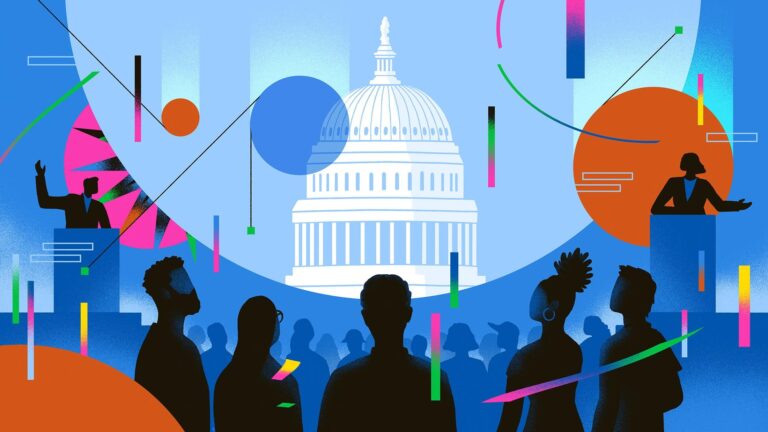Understanding the Complex Relationship Between Americans and Their Government
Historical Patterns of Distrust and Enduring Reliance on Government
Over the past several decades, extensive research by the Pew Research Center has painted a detailed picture of American attitudes toward their government—one marked by persistent skepticism yet simultaneous dependence. Despite numerous changes in leadership and policy, a large segment of the population remains wary of government transparency and effectiveness. Trust in federal institutions has notably fluctuated in response to pivotal events such as the Watergate scandal, the September 11 attacks, and the 2008 economic downturn. However, trust levels have seldom rebounded to the relatively high confidence seen in the immediate post-World War II period.
Currently, less than 30% of Americans believe that the government operates primarily for the public’s benefit, with the majority perceiving it as catering to special interests or entrenched bureaucracies. Yet, this skepticism coexists with strong support for government involvement in critical sectors like healthcare, education, and economic assistance. This paradox highlights a complex dynamic where distrust does not translate into wholesale rejection of government roles.
To illustrate this evolving sentiment, the table below compares trust and support for social programs across recent decades:
| Decade | Trust in Government (%) | Support for Social Programs (%) |
|---|---|---|
| 1970s | 35 | 65 |
| 1990s | 40 | 70 |
| 2010s | 25 | 75 |
| 2020s | 28 | 77 |
Several key elements contribute to this duality:
- Media Fragmentation: The rise of polarized news outlets intensifies critical views of government actions.
- Political Divisions: Increasing partisanship deepens mistrust across demographic groups.
- Direct Impact of Policies: Continued support for programs that directly affect citizens’ well-being, such as Medicare and unemployment benefits.
Public Endorsement of Government’s Core Responsibilities Despite Doubts
Even amid widespread doubts about political leadership and institutional integrity, many Americans acknowledge the government’s vital role in maintaining societal stability. While frustrations with inefficiency and partisan gridlock persist, there is broad agreement that certain government functions—like national defense, public safety, and social welfare—are indispensable and best managed by public institutions.
Recent polling data reinforces this consensus, revealing strong public backing for essential government services:
- 82% support the government’s responsibility for national security.
- 75% favor government-led initiatives in public health.
- 68% believe federal agencies should oversee disaster response and recovery.
| Government Function | Public Support (%) |
|---|---|
| National Defense | 82 |
| Public Health Programs | 75 |
| Disaster Relief | 68 |
| Infrastructure Development | 65 |
Areas Where Americans Demand Greater Transparency and Accountability
Across the nation, citizens consistently call for enhanced openness and responsibility in several critical government sectors. Foremost among these concerns is the management of public funds. Many Americans seek more detailed and accessible reporting on how tax revenues are spent at federal, state, and local levels. Beyond fiscal transparency, there is a growing demand for clarity in governmental decision-making processes and strict adherence to ethical standards.
Trust is also closely tied to law enforcement practices and the criminal justice system, where public pressure for transparency regarding policies, incidents, and reforms has intensified. Additionally, the COVID-19 pandemic highlighted the necessity for clear communication and accountability in public health policy. Other prominent areas of concern include:
- Use and oversight of surveillance technologies, with emphasis on privacy safeguards
- Disclosure of campaign finance and lobbying activities
- Transparency in environmental regulations and enforcement actions
- Accessibility and openness of government-held data and public records
Strategies to Rebuild Trust and Improve Government Performance
Reestablishing public trust in government demands a comprehensive strategy focused on openness, accountability, and citizen engagement. Expanding open data initiatives can empower citizens by providing straightforward access to information about policy decisions, budgets, and legislative activities. Enhancing participatory mechanisms—such as community forums, digital feedback platforms, and participatory budgeting—can foster greater public involvement and a sense of shared responsibility.
Equally important is the enforcement of rigorous ethical guidelines and the establishment of independent oversight bodies to minimize corruption and ensure officials prioritize the public good. Embracing technological innovation and streamlining bureaucratic processes are also critical to delivering services more effectively. Investing in workforce development and promoting collaboration across agencies can break down silos and improve problem-solving capabilities. The following table outlines key approaches that can guide governments in restoring confidence and boosting operational efficiency:
| Approach | Expected Outcome | Illustrative Example |
|---|---|---|
| Open Data Platforms | Enhanced transparency | Interactive budget dashboards |
| Citizen Engagement Channels | Increased public participation | Virtual town halls and surveys |
| Ethics Oversight Bodies | Lower corruption risk | Independent ethics commissions |
| Digital Service Upgrades | More efficient service delivery | Online permit and license applications |
| Cross-Agency Collaboration | Improved coordination | Joint task forces for crisis response |
Final Thoughts
As American perceptions of government continue to shift, the insights from Pew Research Center reveal a layered relationship characterized by enduring skepticism alongside recognition of government’s crucial societal roles. While distrust has been a persistent theme, many citizens still value the government’s capacity to address essential needs. This intricate balance will shape future policy discussions and governance strategies as the country confronts ongoing and emerging challenges.







